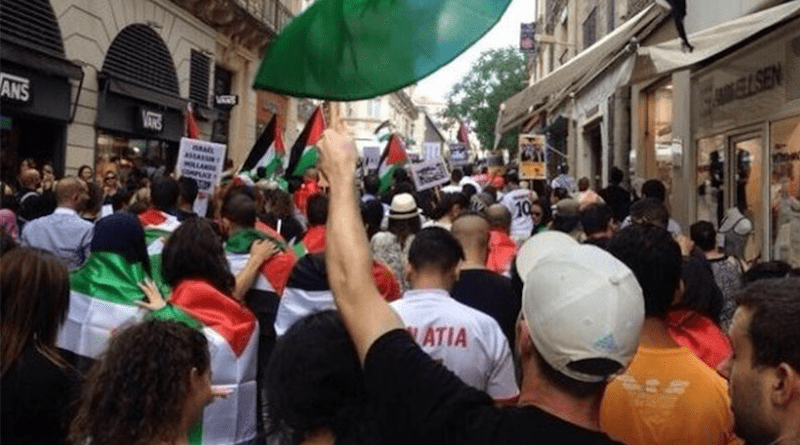How The Israel-Hamas War Is Dividing French Society – OpEd
By ECFR
By Camille Lons
The terrorist attack carried out by Hamas on 7 October reignited the trauma of the November 2015 Paris attacks for many in French society. But the impact of the attack and the subsequent war goes far deeper, resonating with France’s profound political, social, and religious divides – and policy makers fear that the ongoing fallout from the war will worsen these tensions. With its large Jewish and Muslim communities, and a fraught colonial past in the Middle East and North Africa, France is being torn apart by the events in Gaza and Israel. While the war in Ukraine generated a rare consensus within the French population and political class, the war in Gaza may expose the strong divides that underpin it.
France is home to a population of around six million Muslims, most of whom are of North African descent. The Palestinian cause has long been close to the heart of French Muslims, who often identify with Palestinians’ suffering through their own experiences of discrimination. As such, the ongoing destruction caused by the Israeli siege of Gaza has triggered personal and deep seated anger within France’s Muslim community. And, just three months after the violent riots that followed the killing of a young French Muslim by police, French authorities fearanother outburst of violence may be imminent.
In particular, there are grave concerns that France’s Jewish community, which is the largest in Europe, may be targeted. Over a hundred anti-Semitic acts were reported in the five days following the Hamas attack. A more marginal fear of the French authorities is that some extremist groups may instrumentalise the current developments in Gaza to radicalise vulnerable individuals and carry out terrorist acts on French territory. Although there is no confirmed connection with the events in Gaza, a new Islamist terrorist attack hit France just a few days after the events in Israel, raising concerns that other attacks could follow. Conversely, many French Muslims worry that the gruesome acts perpetrated by Hamas may fuel Islamophobia and strengthen the rise of far-right narratives in France that associate Islam and migration with a risk of terrorism.
In this context, public reactions to the events in Gaza and Israel have become a subject of strong political divisions in the French public debate. While the government and most political parties firmly condemned the Hamas attack and supported Israel’s right to defend itself, some political voices on the far-left faced vehement criticism for attributing some responsibility for the attack on Israel’s occupation of Palestinian territory. The far-left party La France Insoumise, which counts on an important electoral base among the French Muslim minority, refrained from calling the event a terrorist attack, putting the political alliance of left-wing parties – the NUPES – on the brink of implosion. By contrast, the far-right party Rassemblement National (RN) vocally condemned the attack, finding an opportunity to conceal its own anti-Semitic and Holocaust-denialist baggage. The RN’s position also targets the Jewish electorate which, according to recent studies, is increasingly shifting to the right, and even to the far right, after long voting on the left.
Fearing that the debates may further inflame tensions within France, President Emmanuel Macron made a solemn presidential address to the nation on 12 October, calling the country to “remain united” and stating that “those who confuse the Palestinian cause with the justification of terrorism are committing a triple error: moral, political and strategic”. By drawing a distinction between the support of the Palestinian cause and the support of Hamas, Macron tried to speak to both Muslim and Jewish communities. But as Israel continues its offensive in Gaza, sparking a major humanitarian crisis, it may become increasingly difficult for Macron to maintain this balance.
About the author: Camille Lons, ECFR Alumni · Programme Coordinator, Middle East and North Africa
Source: This article was published by ECFR

